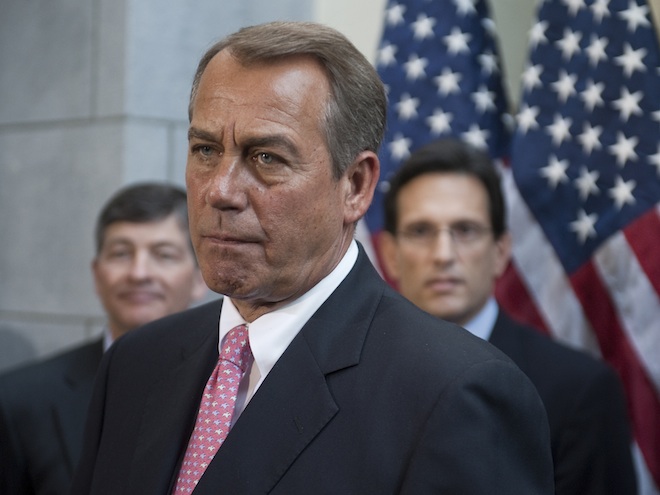Over the last week, the signals have been abundant that congressional Republicans are pivoting from their total opposition to “Obamacare” toward supporting the more popular chunks of the law.
It’s an election-year strategy to mitigate the fallout if the Supreme Court grants them their wish and strikes down the law next month. The House GOP is weighing a replacement plan to reinstate its more popular components, such as guaranteeing coverage regardless of pre-existing conditions, letting people under 26 stay on a parent’s policy and closing the Medicare “doughnut hole.” The idea is also percolating among Senate Republicans.
Publicly at least, numerous GOP leaders are sticking to the anti-Obamacare script. Many Republicans aides and sources close to leadership declined to weigh in, but the rest said discussions have been brewing.
“I think it is all part of the fact that repeal was so far away in 2010 and even in 2011. Now, as the possibility arises that part of the law could be repealed is only a month away, there is some disorder,” said a well-connected health industry lobbyist and former GOP aide.
Republicans don’t want to be accused of throwing a swath of disabled people, young adults and seniors to the wolves if they succeed at scrapping “Obamacare.” But those fixes were made possible thanks to the unpopular provisions that accompanied them, most notably the individual mandate. Forbidding insurers to turn away sick customers is ultimately unworkable without a provision to expand coverage to healthy people. Health policy experts — and policy-savvy Republicans — recognize this economic reality.
“I still think it is pretty tight and much is a result of some members not understanding the Republican POLICY behind how to do some of those same things [the health care law] does without using a mandate or 2,700 pages to do so,” the former GOP aide said in an email.
In other words, Republicans are offering voters an implausibly rosy proposition: Enjoy the popular pieces of the Affordable Care Act but don’t worry about the unpopular components. But if the GOP actually tries to put that plan into effect, they’ll run into a world of problems — not least of which would be an all-out assault from the insurance industry, which will feel the hardest pinch from the GOP’s “have your cake and eat it too” proposal. That raises questions as to how serious Republicans are about the replacement plan.
“Market reforms won’t work without a mandate,” said an insurance industry source. The industry has been at pains to explain the inextricable link between guaranteed coverage for pre-existing conditions and a mandate to purchase insurance.
All of which exposes how problematic the GOP’s two-year-long posture of total repeal always was. As a short-term political posture, it has served them well. But now that the Supreme Court might give them what they want, they’re forced to deal with the reality of what it would mean. And that’s a huge wake-up call for the party, especially one without a clear leader to herd the cats as they figure out their next move.
As one Republican health care aide put it to TPM, “I do think some Republicans are finally starting to realize they could be the dog that caught the car.”






